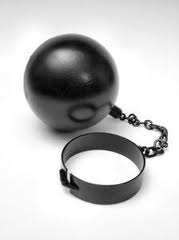 AN v Secretary of State for the Home Department [2010] EWCA Civ 869 (28 July 2010) – Read judgment
AN v Secretary of State for the Home Department [2010] EWCA Civ 869 (28 July 2010) – Read judgment
The Court of Appeal has held that control orders of three men suspected of terrorism revoked by the Government should in fact be quashed altogether. The decision opens the door for the men to claim compensation, and deals another blow to the controversial control order scheme.
This is the latest in a long and tortuous series of court judgments which have chipped away at the controversial control order scheme. This latest decision arises from a 2009 House of Lords (now the Supreme Court) decision that it was a breach of the right to a fair trial under Article 6 (the right to a fair trial) to hold someone under a control order without sufficient information about the allegations against him, even where the case against the “controlee” was based on closed materials, the disclosure of which would compromise the country’s national security (see our summary).
After the House of Lords decision, the Secretary of State decided to revoke the control orders rather than revealing the sensitive evidence which had formed the allegations against the controlee. However, the question for this hearing was whether in fact it was not enough to revoke the orders but rather the control orders should be quashed with effect from the dates upon which they had been made.
This may seem a rather technical point, but as Lord Justice Maurice Kay pointed out, it was of great significance to the three men involved:
The point is not merely academic. AN is the subject of criminal proceedings for breach of his control order. If it were to be quashed ab initio, the prosecution would fall at the first hurdle. AE and AF do not face criminal proceedings but they wish to claim damages in respect of the period of about 3½ years for which they were subject to their control orders prior to revocation.
The court ultimately held that revocation was not enough. Since Convention rights were at issue (in particular, the right to a fair trial), it was crucial that the men received a proper remedy which would justly satisfy the original breach:
It must be plain from what I have said that, in my judgment, the appropriate remedy in all these cases is one of quashing ab initio as held by Silber J and not simply revocation as determined Mitting J… I agree with the submission made on behalf of the controlees that, if the appropriate remedy were merely revocation, there is a risk that a breach of Convention rights would go substantially unremedied. This is best illustrated by the situation in AN, who still faces prosecution and potential imprisonment for breach of his control order prior to revocation. I say nothing about the prospective damages claims of controlees because they are not before us and it is said on behalf of the Secretary of State that they raise difficult issues at common law and under the Human Rights Act.
The judgment has been widely reported. The Guardian highlight that the men could now claim damages, but also quote a Home Office spokesman, who said:
We note the judgment of the court of appeal and have applied for permission to appeal. We will resist strongly paying damages to former subjects of control orders wherever possible. We have already made clear our intention to review the control order system while taking whatever steps necessary to protect the public. That work is under way as part of the review of counter-terrorism legislation.
There are only 12 control orders currently in force and there have been under 50 since the system was created in 2005. This court decision creates further headaches for those administering the system, and will add to calls for it to be reduced or scrapped altogether in the coming anti-terrorism review.
Read more:
- Control order breached human rights say Supreme Court
- Joint Committee on Human Rights calls for control order scheme to be discontinued
- Suspect terrorist on bail entitled to continued anonymity in his own interests
Sign up to free human rights updates by email, Facebook, Twitter or RSS
